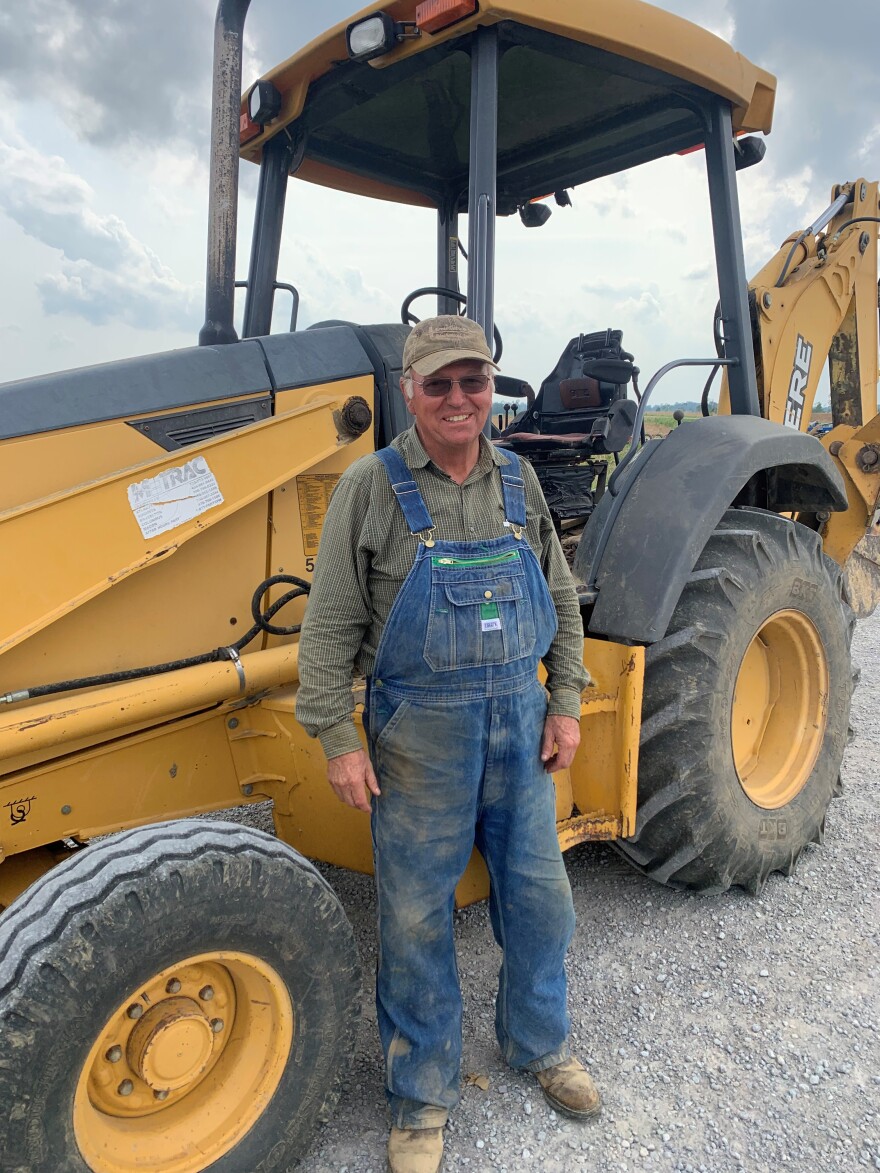Last December, it took just a few minutes to wipe out decades of history for some Kentucky farm families, and with it, their way of life.
The deadliest tornadoes in state history destroyed barns and equipment, killed livestock and poultry, and collapsed fences and grain systems. In rural Muhlenberg County, farmers are rushing to get crops in the ground amid the rebuilding.
The Dec. 10-11 tornadoes will go down as the most expensive weather event ever for Kentucky agriculture. Six months later, farmers are still feeling the effects of the disaster.
“Everything you go to look for...well, that was in the shop and the shop’s gone, and I don’t have that anymore," said Muhlenberg County farmer Tim Hendrix.
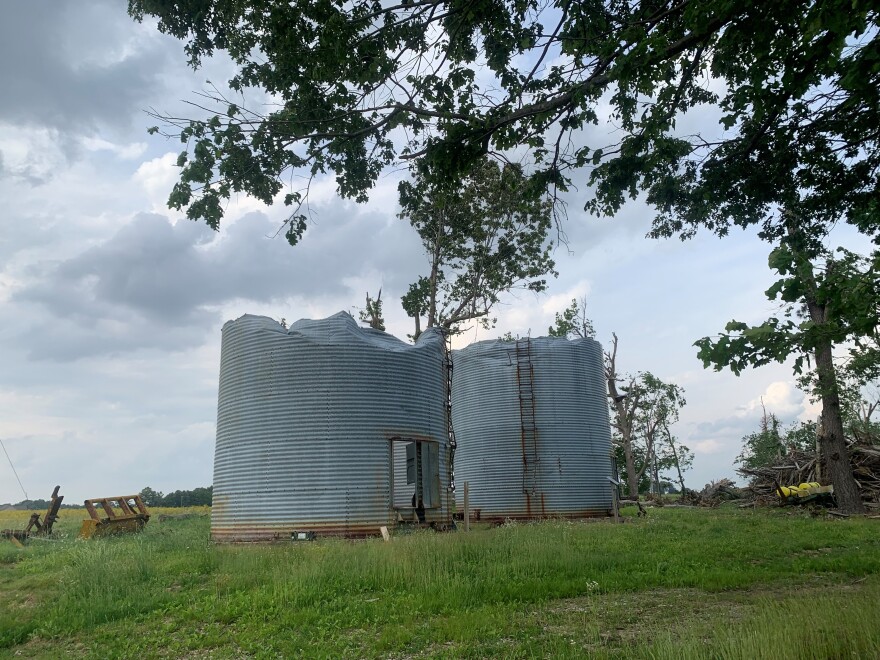
Hendrix operates a 1,000-acre corn and soybean farm just off Highway 175 in Bremen, a Muhlenberg County town with a population around 350. Hendrix lost his home to the tornado, which also damaged or destroyed two of his grain bins, seven trucks, two tractors, a combine, and a grain cart.
The 12,000 pound backhoe he owns was thrown about 40 feet. That’s how powerful and historic this F-4 tornado was when it traveled 17 miles through Muhlenberg County. Hendrix walked around his three-generation family farm recently, remembering the scene following the storm.
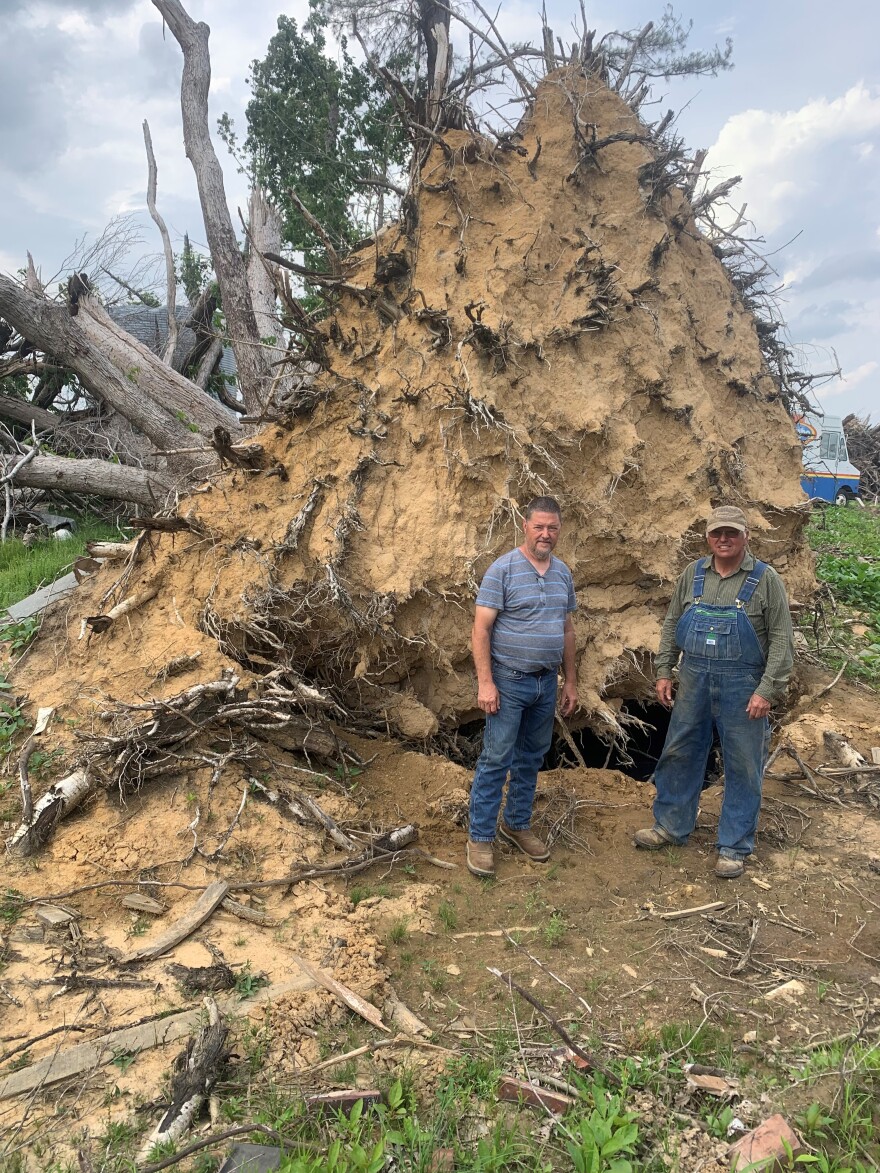
"That’s a grain cart. It brought it over here about 700 feet, turned it over two or three times," explained Hendrix. "Down here is our grain bins. They were pretty well full and it took the tops off them. Our shop was right here. It was a 40X60 Quonset Hut, which takes the wind pretty good, but not a direct hit from a tornado.”
Spring planting season in Kentucky starts around April 1. At a time when he should be wrapping up, Hendrix is just getting started. Tornado debris in his fields has hindered the start of planting.
"We’ve found tires, wheels, toys, tree branches, metal, barn roofs, furniture, lumber," he recalled. "I mean, you name it.”
Kentucky Agriculture Commissioner Ryan Quarles said debris is something farmers will likely deal with for a long time.
“I predict there’s going to be flat tires for years to come because even if a farm was unaffected, chances are, they may have had debris land on their farm," Quarles told WKU Public Radio.
As the cleanup continues, the price tag of the devastation is still unknown. The Kentucky Department of Agriculture didn’t provide a statewide damage estimate for the farming industry following repeated requests. The University of Kentucky Cooperative Extension Office in Muhlenberg County estimates close to $7 million in agricultural damage in this county alone.
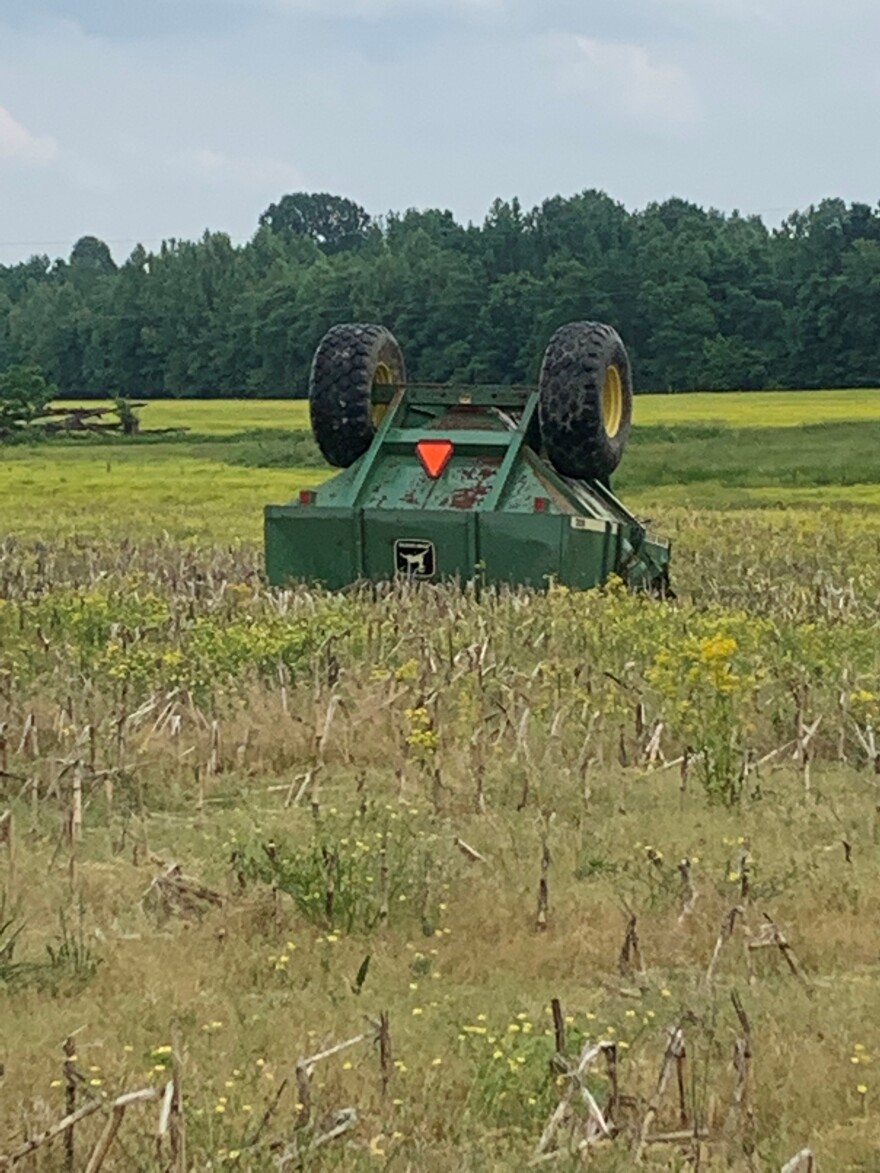
Hendrix is planting late, which means he’ll harvest late, but Mother Nature will ultimately determine the yield. He’s had bumper crops in recent years, but is preparing for a possible drought. Still, during a growing season already upended by the tornadoes, Hendrix said he's keeping the faith that sustains farmers during difficult times.
“You can’t dwell on the hard times, the tough times, and your loss. You have to dwell on the good times and better times ahead," Hendrix said. "This life is a journey, not the destination. We feel blessed we’re able to work and still doing what we like to do. It can always be worse.”
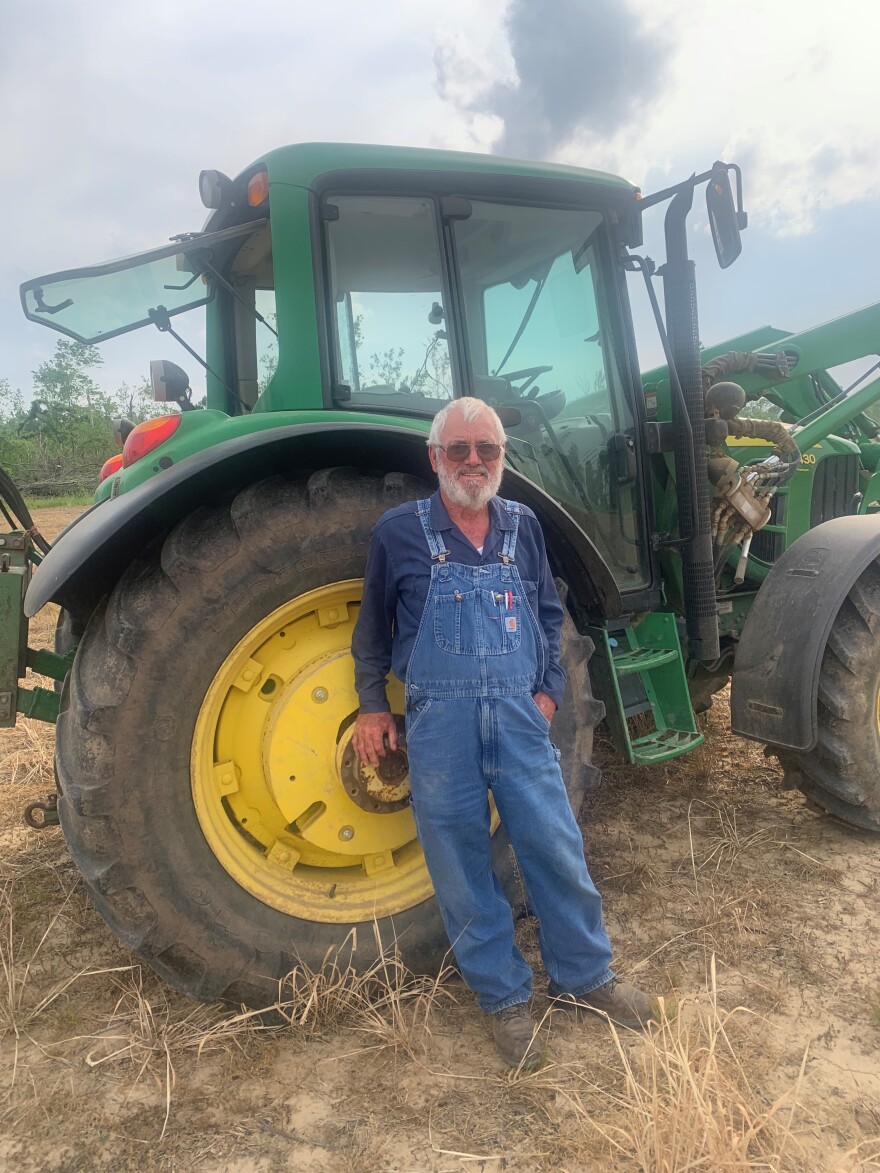
Down the road from Tim Hendrix’s farm is Lost Valley Farms owned by Danny Miller. He has 350 acres of corn and soybeans. He recalled the night of the tornadoes and not knowing in that moment just how much of his life would have to be rebuilt.
“Me and my wife was in the basement. I really didn’t hear much. First thing I heard was my grandson beating on the door like he was gonna knock it down," recalled Miller. "He said, ‘Papaw everything’s gone.’ I said, ‘What?’ He said, ‘The barns, the house, everything’s gone.’”
The tornado damaged or destroyed seven of Miller’s barns, wagons, hay balers, and 15-20 miles of fencing. Like many farmers in areas affected by the tornadoes, Miller found he was underinsured as the costs of materials have climbed. On top of repairs and rebuilding, farmers are facing major inflation, supply chain issues, and the surging cost of fertilizer and other inputs.
“We had a little money saved back and it’s gonna take a lot of it, and we’re gonna have to borrow for sure to put the crop out," Miller said.
Miller lost 50 of his cattle and fears his remaining herd will suffer from all of the downed trees.
“I’ll never see the trees back like they were," he said. "The cattle’s gonna hurt because of no trees. They won’t have no shade, so we may have to build some shade structures for the cows to get under in the real hot summer.”
Miller used to work this land with his brother. Bill Miller, and his wife, Judy, became two of storm’s victims when they were picked up and thrown from their modular home on the farm.
“Their son called them about ten minutes before this happened. They said, ‘We’ll be okay. We’re watching TV and then we’re gonna go to bed,'" Miller recalled. "We’ll be okay, but it’s hard getting along with him."
The loss of his brother and sister-in-law is helping Danny Miller put his farm losses into perspective. Miller has resolved to keep the farm going as long as possible. At the age of 75, he knows it won’t be too long before he passes the torch to his grandson. Miller said it’s hard to know when his way of life will be back to normal.
“I don’t say longer than I’ll live, but it’s going to push it. I’d say five years.”
It’s been said there’s no better demonstration of faith than someone planting seeds in a field. Resilient farmers in Bremen are plowing ahead, hoping a better season is on the way.

